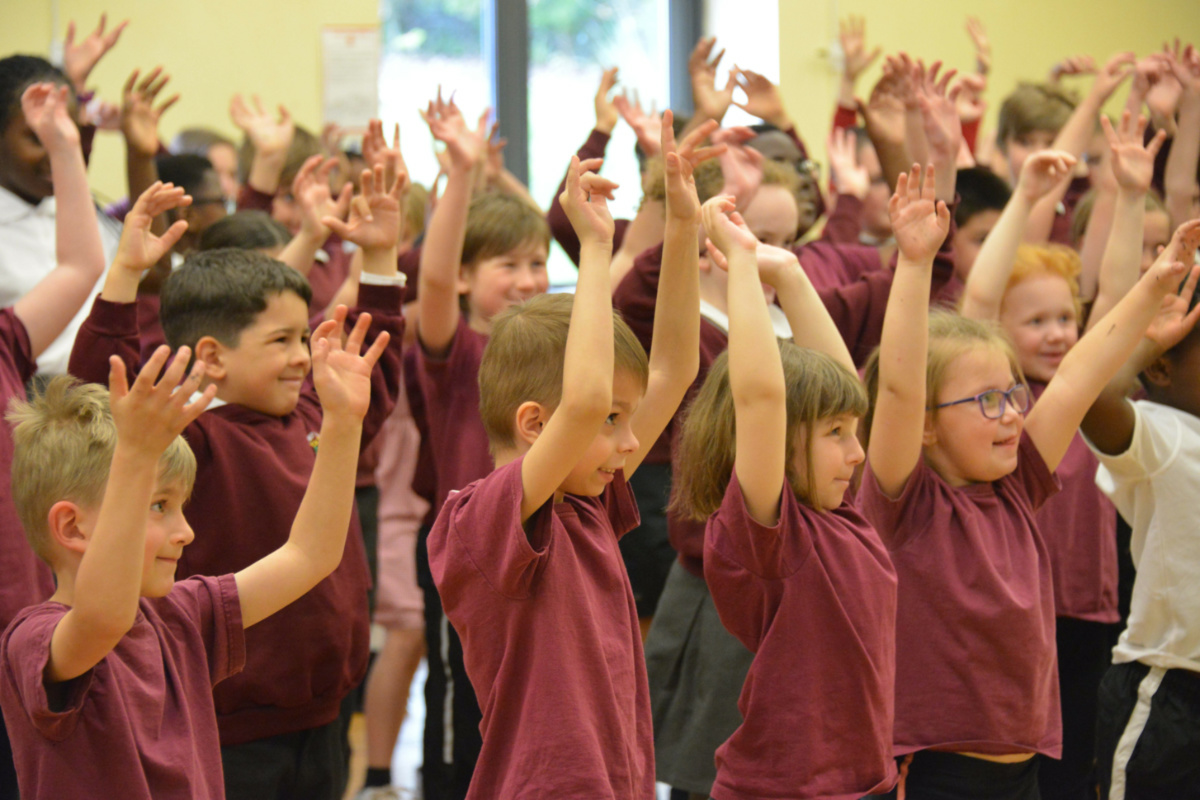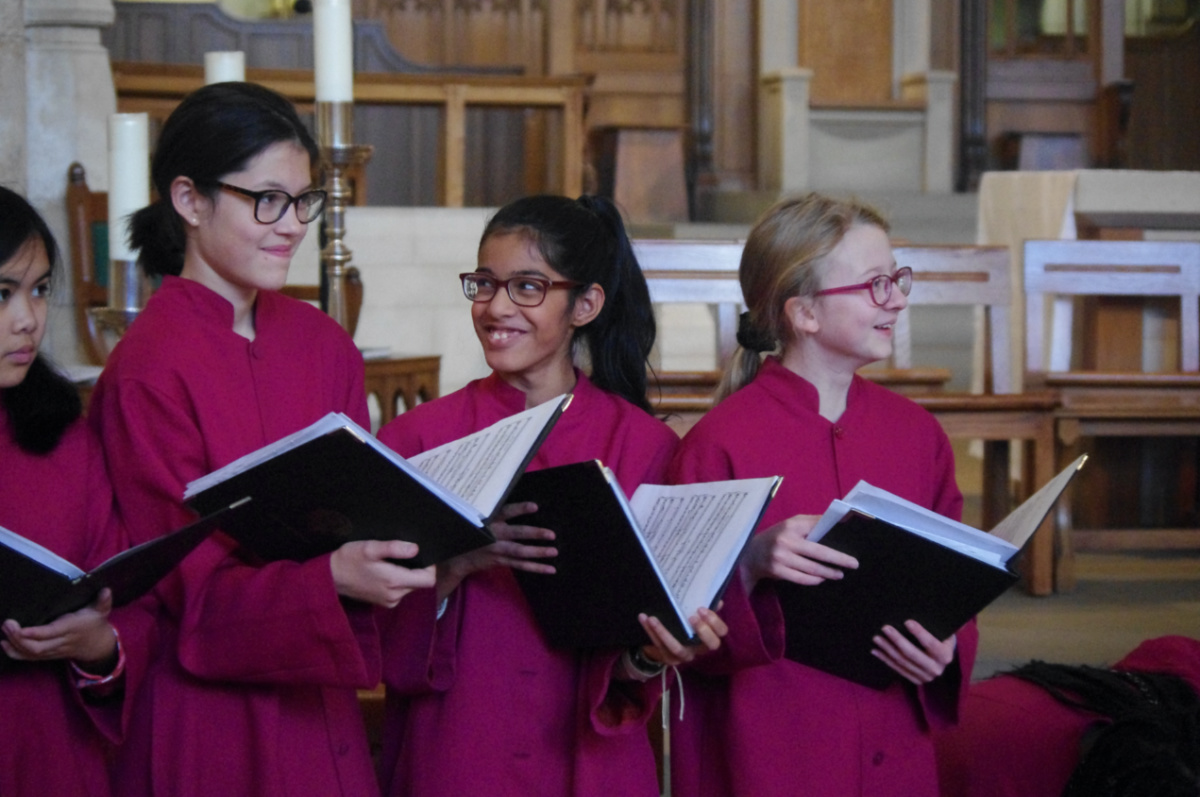Norwich, UK
UK cathedrals are seeking to make the British choral tradition more widely available by extending opportunities for children in state schools to engage with music through the National Schools Singing Programme.
“First-class choral tuition has often been only the privilege of pupils at private choir schools, not children in state schools,” explained Callum Tempest, an operations consultant with the National Schools Singing Programme. “Access to specialist music lessons is particularly acute in socially marginalised and economically deprived areas.”

A Schools Singing Programme session in progress. PICTURE: Courtesy of Catholic Diocese of Leeds.
As a result of the decision by Derby, Leicester, Liverpool, Newcastle, Sheffield and York cathedrals to join 27 Catholic dioceses in the NSSP, the program is expected to reach around 20,000 children in more than 200 state schools every week.
The initiative started in 2003, when the Catholic Diocese of Leeds set up a Schools Singing Programme, which now provides sustained access to expert choral tuition for 6,000 children in state schools on a weekly basis.
Among those children was Josh Chima, who went to school in Bradford and is now studying law at the University of Oxford.
“Growing up in inner-city Bradford, the choir and organ lessons gave me the confidence to fulfil my potential,” he said. “From singing weekly Vespers at the local church to performing on TV in front of millions, I have continually drawn on the lessons of resilience”
As a result of this Leeds project, the NSSP was established and supported by funding of £4m provided by the charitable Hamish Ogston Foundation in 2021.
“Schools have to have music, and with churches’ expertise in choral music, we thought, why not work with the very best?” said NSSP consultant Ben Saunders. “Cathedrals historically have this commitment to music, developing it and enhancing the base in the state schools. They have always been centres of education, patrons of the arts, and particularly from a Christian viewpoint, champions of the poorest and most disenfranchised.”
Some 27 of the 32 Catholic dioceses across the UK have now replicated the Leeds program in their own geographical areas as part of the NSSP scheme. This latest expansion involving six Anglican cathedrals aims to test the model in a different sphere, using cathedrals rather than dioceses as a centre for a program.
The six cathedrals were chosen for their diversity and their ability to reach some of the most music-deprived areas of the country. A key element in the program involves ensuring that the choral singing sessions are not an extra-curricular activity. Instead they take place in school hours so that all pupils have access and opportunity to enjoy choral singing, while meeting the requirements of the new National Plan for Music Education in schools. At each location, a full time choral director for schools oversees the program.
The Dean of Derby, the Very Revd Dr Peter Robinson said: “This gives us the means to expand our Music in Schools Initiative, which is a key part of our strategy and direction for learning and partnerships.”
As a result, Derby Cathedral anticipates that its £75,000 grant will enable more than 900 children, particularly in areas of social deprivation, to be introduced to a high quality musical education and experience the joy of choral music.

Leeds Cathedral Girls Choir. PICTURE: Courtesy of Catholic Diocese of Leeds
Simon Toyne, music director for the Hamish Ogston Foundation commented that in “every school in the country, you will find children with great voices”
“The importance of NSSP is enabling those voices to be nurtured, trained and developed by expert choral directors, empowering them to sing in well-run school choirs, and connecting them to their local cathedral choir,” he said. “The British choral tradition is unique in championing young people to make music at the highest level – it respects young people as professionals – but there is a danger that it is only accessed by those who already know about it. Our shared aim to enable every child in the country to participate.”
Ultimately, it is hoped that singing during school hours will lead to the foundation of after-school choirs, or to children joining existing choirs.






